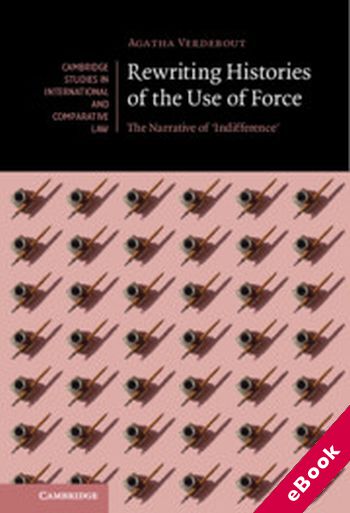
The device(s) you use to access the eBook content must be authorized with an Adobe ID before you download the product otherwise it will fail to register correctly.
For further information see https://www.wildy.com/ebook-formats
Once the order is confirmed an automated e-mail will be sent to you to allow you to download the eBook.
All eBooks are supplied firm sale and cannot be returned. If you believe there is a fault with your eBook then contact us on ebooks@wildy.com and we will help in resolving the issue. This does not affect your statutory rights.
It is commonly taught that the prohibition of the use of force is an achievement of the twentieth century and that beforehand States were free to resort to the arms as they pleased. International law, the story goes, was 'indifferent' to the use of force. 'Reality' as it stems from historical sources, however, appears much more complex. Using tools of history, sociology, anthropology and social psychology, this monograph offers new insights into the history of the prohibition of the use of force in international law. Conducting in-depth analysis of nineteenth century doctrine and State practice, it paves the way for an alternative narrative on the prohibition of force, and seeks to understand the origins of international law's traditional account. In so doing, it also provides a more general reflection on how the discipline writes, rewrites and chooses to remember its own history.